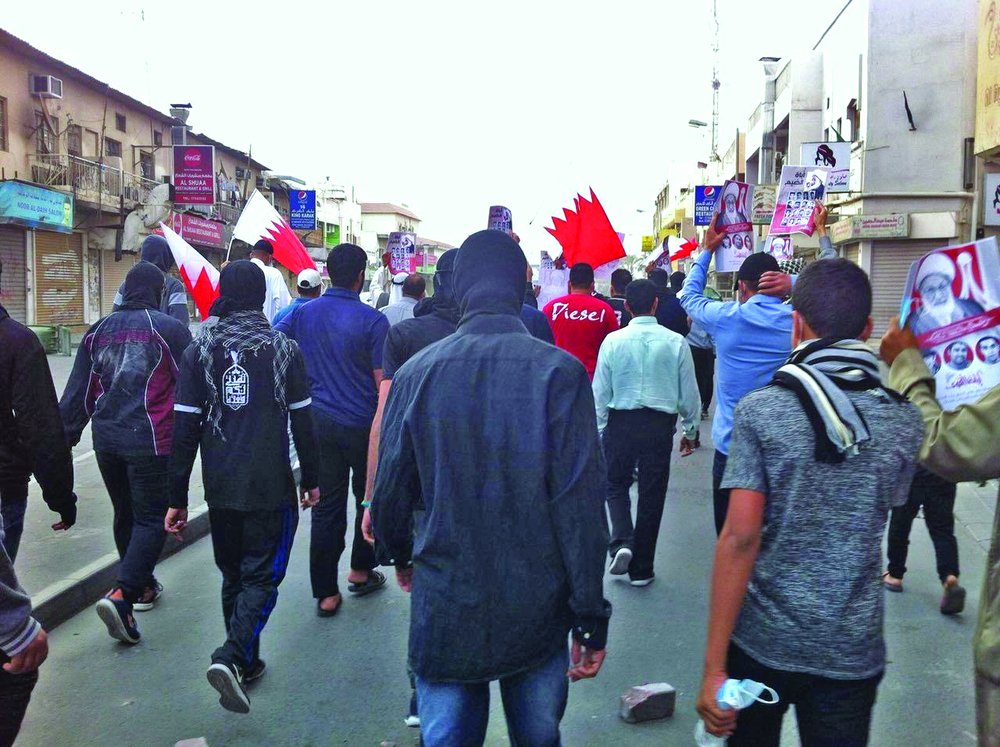Ill treatment of dissidents in Bahrain continues

The Bahrain revolution has turned eight years old as of February 14 and the al Khalifa regime has increasingly been intrusive and ineffective in ending the unrest.
On the occasion of the anniversary of the start of the popular movement in the country, the Deputy Secretary General of the Islamic National Accord Association (Al-Wefaq), Sheikh Hussain al Daihi, wondered whether Bahrain needs to address and solve the problems and crises that besiege it from all sides and who is responsible for the absence of solutions. He condemns the lack of any accord form years.
The Bahraini people have repeatedly called for a halt to peaceful protest in various parts of the country along with the end of discriminatory practices by the regime.
Since the start of the peaceful demonstrations against the al Khalifa regime in Bahrain, the regime has taken many measures to confront its opponents. Targeting the homes of dissidents, threatening them with arrest and, in some cases, sexual assault, have been common ploys by the government.
But what exactly caused the patience of the Bahraini people to end on February 14, 2011? What are the demands being made by the discontented, especially Bahrain’s Shi’a community?
1. Drafting a new constitution in which all religions in Bahrain enjoy the same rights.
2. Fully Democratic Parliamentary Elections.
3. The release of all political prisoners who were arrested only for opposing the regime.
3. Holding democratic elections in the country so that the power in the country is not limited to a particular clan such as the al Khalifa’s.
However, the authorities of the regime have not responded positively to the legitimate demands of the Bahraini people. The martyrdom of a large number of Bahraini revolutionary youth and the arrest of countless scholars and intellectuals continues.
Over the past few months, regime officials have carried out numerous acts against the Bahraini revolutionaries and, particularly, revolutionary political parties and movements. The most important actions have been the intensification of Sheikh Ali Salman’s imprisonment, the secretary general of the Wefaq association, and the stripping of Sheikh Isa Qassim's citizenship.
The regime is extremely frustrated that the discontent continues and has even grown of late. The main feature of the Bahraini revolution has been “peaceful”. In recent years, the people of Bahrain have not moved aggressively with attacks on government property and institutions. The security forces have not been targeted by the revolutionaries until recently. Even the deployment of Saudi security forces to save the regime in Bahrain did not provoke violence.
Lately, the regime’s attack on scholars and intellectuals has aimed to nullify the influence of leaders on the general population. The regime knows that the Bahraini people are not able to maintain their solidarity to continue the protests against without leaders that are heard. Intimidation and acts of violence against those imprisoned in Bahrain have also increased.
The President of the Bahrain Forum for Human Rights, Baqer Darwish, recently announced torture methods used by the regime on prisoners. This has included the withholding of medical care to detainees when needed.
Regime officials worry that their human rights violations against Bahraini political prisoners will further undermine their reputation. The focus on intimidating and imprisoning Shiite citizens especially continues apace. Courts claim they are subversives planning violence. Even worse has been the treatment of Sheik Isa Qassem, whose physical condition has deteriorated markedly.
Leave a Comment